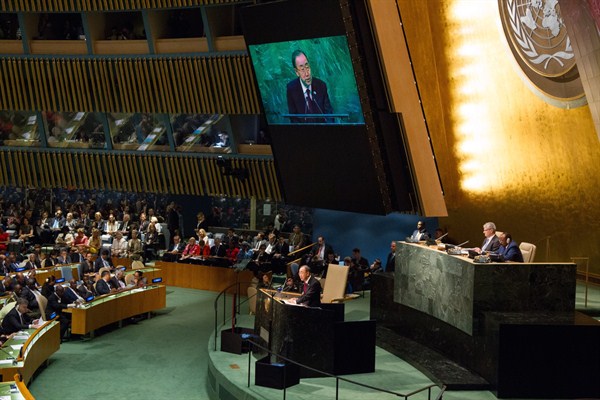As world leaders begin the annual marathon that is the United Nations General Assembly opening session for the 70th time, expect the rhetoric to be both sober and soaring. The institution is caught between honest assessments of its shortcomings and grandiose pronouncements of its future goals that will inspire some and irritate others.
At the risk of simplification, one can evaluate the U.N.’s track record over its seven decades in three distinct areas: war and peace, norm-setting on complex transnational issues and responses to humanitarian, environmental and moral crises.
On the question of war and peace, the verdict has to be positive when it comes to interstate wars. After all, there has been no third world war since the U.N.’s creation in 1945. But it’s much murkier with respect to conflict prevention, peacekeeping and postconflict peace building. While major interstate conflicts are down, experts are worried that in the past three years, internal conflicts and violence in fragile states are on the rise again—witness the renewed violence in Bangui, Central African Republic’s capital, this week.

